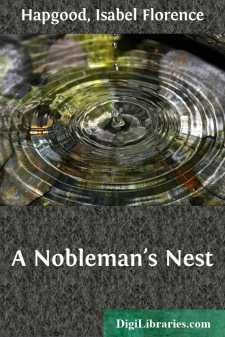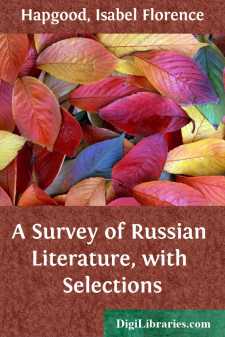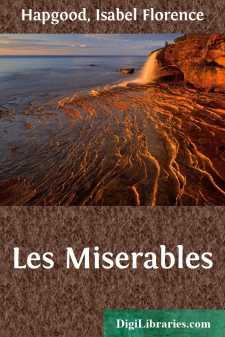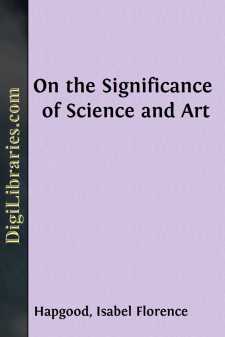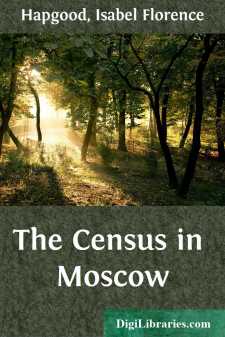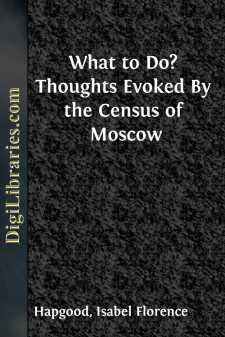Categories
- Antiques & Collectibles 13
- Architecture 36
- Art 48
- Bibles 22
- Biography & Autobiography 813
- Body, Mind & Spirit 141
- Business & Economics 28
- Children's Books 12
- Children's Fiction 9
- Computers 4
- Cooking 94
- Crafts & Hobbies 4
- Drama 346
- Education 46
- Family & Relationships 57
- Fiction 11826
- Games 19
- Gardening 17
- Health & Fitness 34
- History 1377
- House & Home 1
- Humor 147
- Juvenile Fiction 1873
- Juvenile Nonfiction 202
- Language Arts & Disciplines 88
- Law 16
- Literary Collections 686
- Literary Criticism 179
- Mathematics 13
- Medical 41
- Music 40
- Nature 179
- Non-Classifiable 1768
- Performing Arts 7
- Periodicals 1453
- Philosophy 64
- Photography 2
- Poetry 896
- Political Science 203
- Psychology 42
- Reference 154
- Religion 513
- Science 126
- Self-Help 83
- Social Science 81
- Sports & Recreation 34
- Study Aids 3
- Technology & Engineering 59
- Transportation 23
- Travel 463
- True Crime 29
Isabel Florence Hapgood
Isabel Florence Hapgood (1851-1928) was an American writer and translator renowned for her work in translating Russian and French literature into English. She played a crucial role in introducing works by authors like Leo Tolstoy, Fyodor Dostoevsky, and Victor Hugo to the English-speaking world. Additionally, Hapgood was a respected journalist and advocate for Eastern Orthodox Christianity, contributing significantly to cultural and religious understanding between the West and Russia.
Author's Books:
Sort by:
A NOBLEMAN'S NEST I The brilliant, spring day was inclining toward the evening, tiny rose-tinted cloudlets hung high in the heavens, and seemed not to be floating past, but retreating into the very depths of the azure. In front of the open window of a handsome house, in one of the outlying streets of O * * * the capital of a Government, sat two women; one fifty years of age, the other seventy...
more...
I There were eight of us in the room, and we were discussing contemporary matters and persons, "I do not understand these gentlemen!" remarked A.—"They are fellows of a reckless sort…. Really, desperate…. There has never been anything of the kind before." "Yes, there has," put in P., a grey-haired old man, who had been born about the twenties of the present...
more...
THE ANCIENT PERIOD, FROM THE EARLIEST TIMES TO THE INTRODUCTION OF CHRISTIANITY IN 988. Whether Russia had any literature, or even a distinctive alphabet, previous to the end of the tenth century, is not known. In the year 988, VladÃmir, Grand Prince of KÃeff, accepted Christianity for himself and his nation, from Byzantium, and baptized Russia wholesale. Hence his characteristic title in...
more...
CHAPTER I—M. MYRIEL In 1815, M. Charles-Francois-Bienvenu Myriel was Bishop of D—— He was an old man of about seventy-five years of age; he had occupied the see of D—— since 1806. Although this detail has no connection whatever with the real substance of what we are about to relate, it will not be superfluous, if merely for the sake of exactness in all points, to mention here the various...
more...
CHAPTER I. . . . The justification of all persons who have freed themselves from toil is now founded on experimental, positive science. The scientific theory is as follows:— “For the study of the laws of life of human societies, there exists but one indubitable method,—the positive, experimental, critical method “Only sociology, founded on biology, founded on all the positive sciences, can...
more...
RUSSIAN RAMBLES.I. PASSPORTS, POLICE, AND POST-OFFICE IN RUSSIA. We imported into Russia, untaxed, undiscovered by the custom-house officials, a goodly stock of misadvice, misinformation, apprehensions, and prejudices, like most foreigners, albeit we were unusually well informed, and confident that we were correctly posted on the grand outlines of Russian life, at least. We were forced to begin very...
more...
The object of a census is scientific. A census is a sociological investigation. And the object of the science of sociology is the happiness of the people. This science and its methods differ sharply from all other sciences. Its peculiarity lies in this, that sociological investigations are not conducted by learned men in their cabinets, observatories and laboratories, but by two thousand people...
more...
The object of a census is scientific. A census is a sociological investigation. And the object of the science of sociology is the happiness of the people. This science and its methods differ sharply from all other sciences. Its peculiarity lies in this, that sociological investigations are not conducted by learned men in their cabinets, observatories and laboratories, but by two thousand people...
more...
[I saw that money is the cause of suffering and vice among the people, and that, if I desired to help people, the first thing that was required of me was not to create those unfortunates whom I wished to assist. I came to the conclusion that the man who does not love vice and the suffering of the people should not make use of money, thus presenting an inducement to extortion from the poor, by forcing...
more...


